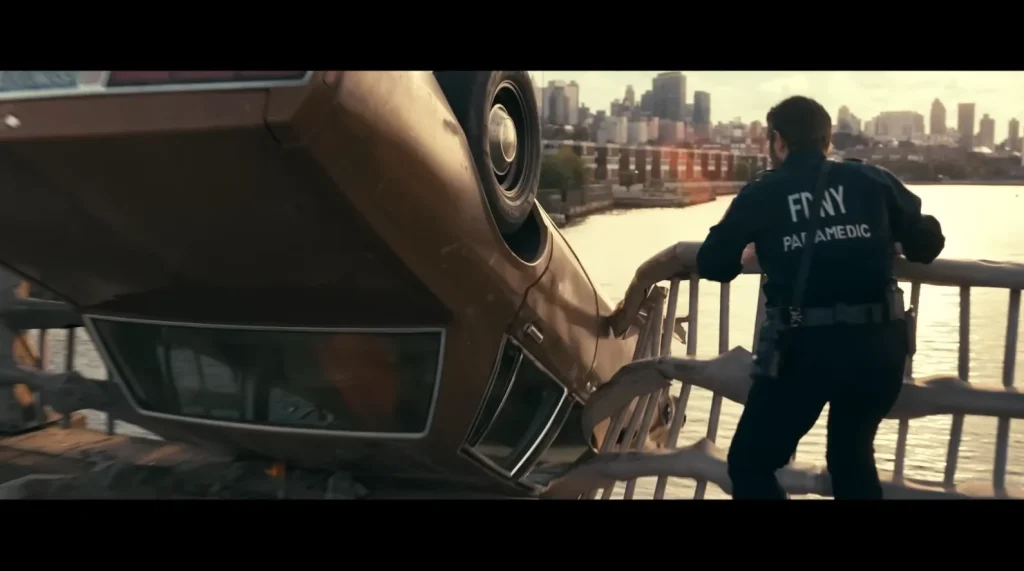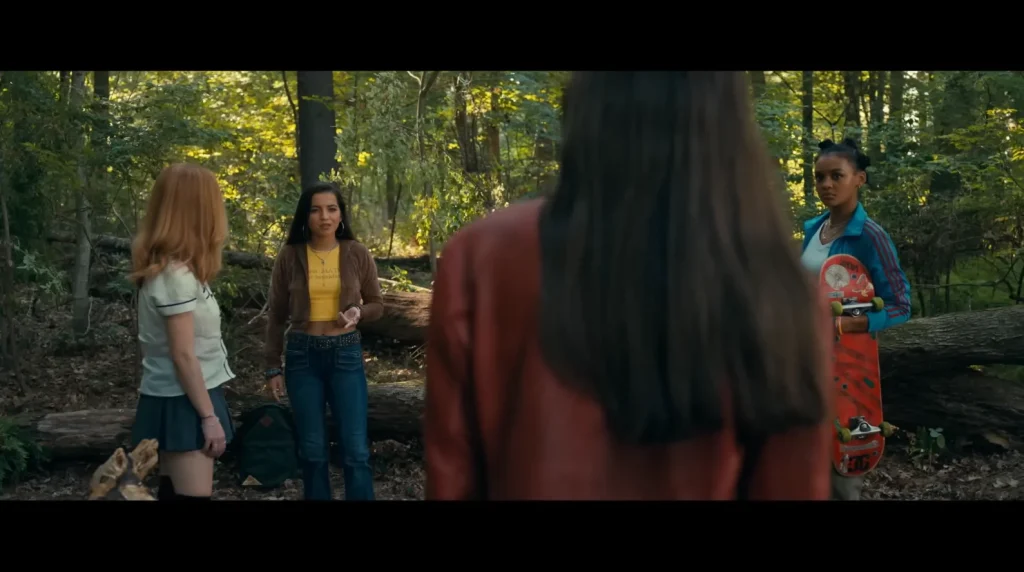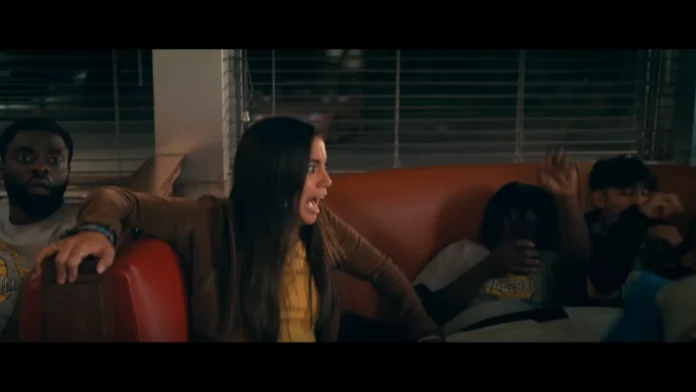I’ve always loved superhero movies. From the first Hulk to Avengers: Endgame, they’ve always left me feeling good from watching them. Each time, though, I approached the viewing skeptically (I don’t want to be one of the nerds who hype a movie like it’s something unique, after all). So yeah, I approached the viewing with skepticism.
But after only 10-20 minutes, I forgot about my skepticism and enjoyed the viewing, special effects, and story. The special effects were often not very good, and the story was not logical. But one feeling kept me going to a superhero blockbuster repeatedly. Whatever problems it had with the story or special effects, it was like watching Tom and Jerry, where you can forget about everything and dream with the superheroes.
Madame Web is a minor Marvel Comics character who first appeared in The Amazing Spider-Man #210 in 1980. She was created by writer Denny O’Neil and artist John Romita Jr. She is known as Cassandra Webb. And yes, Web is a play on words; her last name is Webb. In the original, it’s a blind, paralyzed woman of age who gained supernatural psychic powers. Maybe this isn’t a bad theatrical find that could be appropriate and even fresh in a superhero blockbuster. After all, in a universe filled with young and robust superheroes, such a character could look very unusual and show that it is possible to be a superhero regardless of physical condition and age. If the authors had not decided to intervene. A young woman who works as an ambulance driver appears before us.
It all looks like one big cliché. Her superpowers are created in the style of Final Destination. She sees something terrible about to happen, but it never does because she intervenes and prevents what should have happened. The problem is that, like in Destination, what works well once and makes an impression stops working as the movie progresses and looks annoying and self-repeating.

In fact, the whole Madame Web takes its birth in an attempt to create a Spider-Man universe without (mind you) Spider-Man. Sony is trying in this direction because the first Venom was very successful. So Sony continues to look for secondary characters in the franchise that could be placed in the foreground where they shouldn’t be in the foreground. In the comics, Madame Web’s entire little bit of history was built around her being a secondary character who helped Spider-Man. That fails here because the main character isn’t here. Madame Spidey will take the entire plot out alone.
Okay, it’s no secret to you that the movie flopped. The reasons are many: terrible reviews, waning interest in superheroes in general, and fatigue with endless superhero universes. But that’s not enough to explain such a stunning failure. I remember the first Suicide Squad, which was also a flop. But there, I felt the main thing: the movie had potential; it wasn’t used as it should have been. Here, I don’t even feel that. Madame Web feels like a failure at the very beginning.
In the dense jungles of Peru in 1973, researchers Ezekiel Sims and Constance Webb discovered a spider with unprecedented healing powers. Constance’s life is tragically cut short by Ezekiel’s betrayal, leaving behind a newborn daughter, Cassandra. Luck has it that a local tribe saves her with the help of a healing spider, giving her powers of foresight. This whole spider theme is getting tiresome because there are too many “spiders,” the creators never bothered to bring it all to a common denominator to give us all a little more context and explain “what’s going on here?”. Apparently, a more detailed explanation was supposed to be part of a future sequel or crossover, which is unlikely to happen given Madame Web’s failure.
The main action takes place in 2003 in New York City, filled with references to relics of the time, which seem not real, as if the action didn’t occur 20 years ago. Still, they try to fool me by showing me vintage references to Pepsi and including “Toxic” by Britney Spears. 2003 doesn’t seem that long ago, but it feels like the author needed a historical consultant because everything, including the clothes, refers us back to the 90s, with that leather jacket and military-style boots. All of this creates a feeling of complete incongruity, where even with something as simple as “evoke some nostalgia in me,” the movie fails to do so, leaving me wondering what kind of movie year is happening on the movie screen right now.
Okay, let’s go to Queens, New York. Cassandra “Cassie” Webb, now a dedicated paramedic, experiences a life-changing event, nearly drowning during a rescue mission. This encounter with death reveals her latent ability to foresee the future, and this gift initially leaves her confused. Her skepticism turns to conviction when she fails to prevent the tragedy foreseen in her visions.

Meanwhile, Ezekiel uses the spider’s power for personal gain, developing foresight and improving his physical fitness. He obsessively follows three young women, Julia Cornwell, Anya Corazon, and Mattie Franklin, believing they threaten his life because they have “spider potential” (I can’t contain a chuckle at this point). Cassie’s path crosses with these women, which sets the stage for a confrontation with Ezekiel.
As I said, all three of these women have the potential to become Spider-Women, so Ezekiel isn’t pleased and wants to do something terrible to them to remove the threat. At this point, the idea that the Spider-Man universe is too overpopulated with Spider-Men takes on new meaning because there are too many of them, especially considering the Multiverse presented by Sony in the animated Spider-Man: Across the Spider-Verse. I want to pause for a bit and ponder why many superheroes are associated with spiderwebs, but the movie doesn’t leave room for that, just further expanding the web.
Yeah, I know it was all explained in the comics, including how they got superpowers, BUT it doesn’t work that way because the movie is a standalone thing. And I’d like answers here and now, not to be “referred” to the comics.
So, what’s went wrong?
What went wrong? If you haven’t seen the movie, it’s hard to put into words. One thing that kept my attention (apart from trying to figure out what year it was on the screen) was the meaninglessness of what was happening. I had a similar feeling with the first Dr. Strange, which had a very “passable” villain. But that was all made up for by the excellent graphics, which were (and still are) perceived as “wow” then (and now). Madame Web is somewhat similar because it feels like the movie only exists to give you some information about Madame Web and the three future Spider-Women for a sequel.
It isn’t fascinating, doesn’t have good graphics, and looks like it’s a movie for the sake of a movie to give you some references to the comic book, including Ben Parker and Mary Parker, who is known as Peter Parker’s mother. She mentions in passing that “Richard (Parker’s father) is away on business.” That’s basically where the references end. Even the unborn child is never once referred to by name. I don’t know if such an easter egg would have made me happy or angry, but it would have been at least something to give some joy to the fans, especially considering there’s no post-credits scene.
Was there any chance?
The saddest thing about all this is that the movie could have turned out completely different if it had focused on Madame Web and her story. Of course, it wouldn’t have been a hit, but it could have been an excellent passable movie. But it just wasn’t made for that. When I watched it, I could only compare it to a filler episode in a favorite sitcom, where something is created to fill screen time. The problem is, I don’t sit in front of the TV to watch something for free. I was offered to pay money at the theater for this movie. And I would have been better off turning it down.






